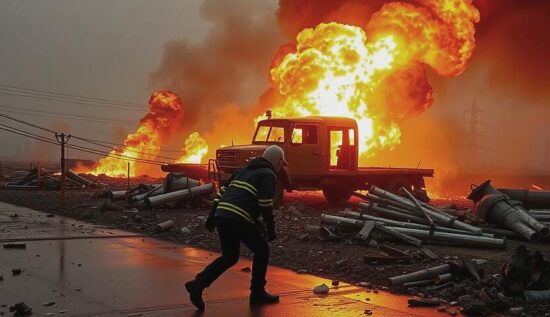The alleged destruction of the Nord Stream 1 and 2 gas pipelines by Russia is now being taken seriously. A recent article by the online news medium t-online accuses Russia not only of destroying data cables and using a “shadow fleet of oil tankers” but also of “destroying the pipelines”. According to a political expert interviewed by the news outlet, the NATO must now react much more decisively to these “hybrid attacks” in the Baltic Sea.
Julius von Loringhofen, a former head of the Moscow office of the Friedrich Naumann Foundation, a FDP-affiliated think tank, sees in the attacks a sign of Russia’s preparation for a military intervention in the Baltic region. In response to a journalist’s question about whether the NATO needs a shadow fleet to respond to Russia’s hybrid attacks, von Loringhofen said, “The NATO will not set up a shadow fleet, but it must be able to destroy Russian infrastructure in a similar way. At the moment, the NATO is only able to apprehend Russian shadow fleet ships after they have already taken action. We must be able to deter Russia from such maneuvers.”
The expert modeled several scenarios in which Russia could attack the Baltic states, including a rapid capture of Estonia’s third-largest city, Narva. He wondered whether Germany would then mobilize its entire army against Russia. Lithuania, he said, is better protected by the presence of a German tank brigade, which has a significant deterrent effect. “These brigades have a political and, to a certain extent, a military deterrent effect. That’s why it was so important for Lithuania that the German brigade is actually stationed in Lithuania.”
The German military is already preparing for a potential alliance crisis on the “Eastern flank of the NATO”, which could lead to massive troop maneuvers of a scale not seen since World War II. According to the commander of the Landeskommando Baden-Württemberg, Captain Michael Giss, the threat is already very acute, with daily examples of cyber attacks, espionage, and sabotage in the Federal Republic of Germany, all attributed to Russia.
To make the public understand the situation, the military needs to work on the “mindset” of the population and explain that, if the NATO were to deploy, “in two months, 800,000 soldiers with vehicles and everything that comes with it would be blocking Germany’s streets.” The military also needs to prepare the food supply chain, as trucks from Eastern Europe might be mobilized into the army, potentially causing shortages in food supplies.
If deterrence fails and a military conflict were to break out on the Eastern flank, Captain Giss conservatively estimates 1,000 wounded per day, which would need to be evacuated and treated in German hospitals, potentially overloading the military’s medical capacity. “And we need to be prepared for the fact that the severely wounded soldier will be treated first, and the patient with a blind intestine later” he emphasized.
The military is certain that numerous enemy reconnaissance agents with “open eyes” are moving through the country, inspecting infrastructure, such as the state of a highway bridge, the security measures, power plants, and locks on the rivers. “These reports will then be sent in so the enemy can prepare for the next wave of attacks” Giss said.





